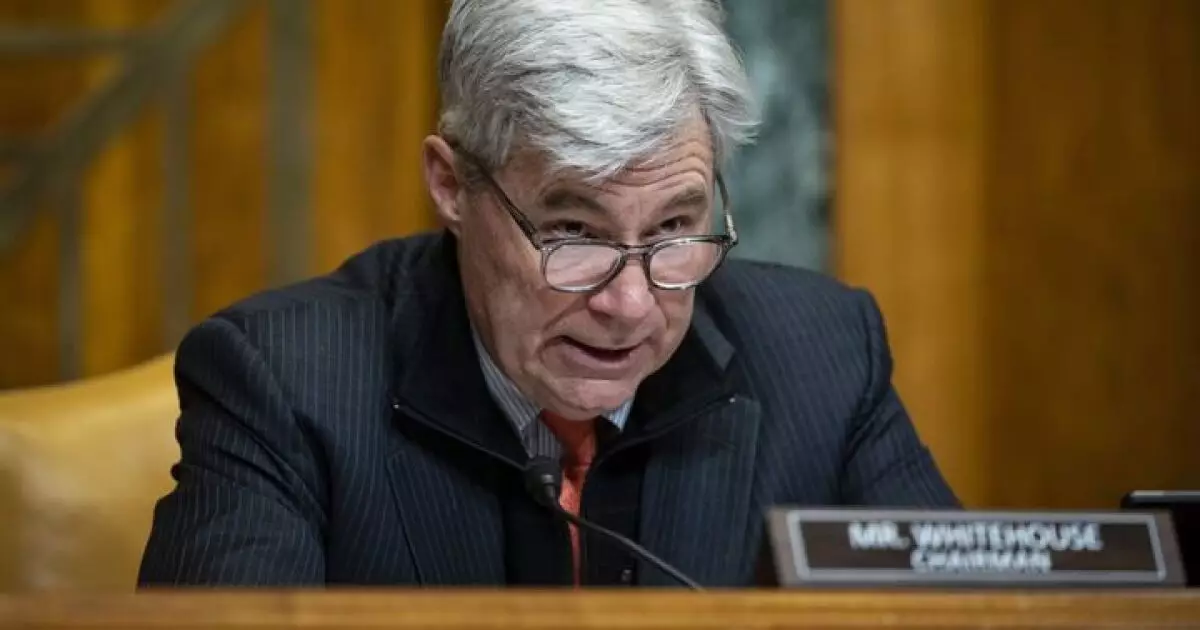The Senate Environment and Public Works Committee is grappling with significant obstacles that hinder the progress of critical infrastructure projects. Recently, during a committee hearing, Senator Sheldon Whitehouse, the Ranking Member, voiced a strong critique of the current administration’s handling of federal funds and permitting processes. He described a pervasive climate of “executive contumacy,” where the Trump administration has allegedly stalled billions in obligated funds due to a blatant disregard for congressional authority and judicial directives. This situation has created what he dubs a “fog bank” around crucial funding that is essential for advancing major infrastructure initiatives.
While partisan disputes linger, the committee’s discussions didn’t shy away from the fact that Congress itself bears some responsibility for the backlog. Senator Shelley Moore Capito, the Committee Chair, acknowledged that inaction at the legislative level has allowed various entities to exploit the judicial system to delay projects, inflate costs, and deter sponsors from proceeding. This admission reflects a need for self-reflection within Congress, recognizing that failure to enact effective reforms has had a direct bearing on the nation’s ability to address its infrastructure challenges.
The ramifications of stalled infrastructure projects extend far beyond mere construction delays, significantly impacting the energy sector and related employment. The Bipartisan Infrastructure Bill and the Inflation Reduction Act were expected to spark a renaissance in clean energy jobs, particularly in offshore wind energy, yet the Trump administration’s apparent withdrawal from supporting these initiatives has jeopardized such opportunities. Brent Booker, president of the Laborers’ International Union of North America, emphasized that the wind industry had been generating substantial employment, but recent policy shifts have halted offshore lease sales, causing project withdrawals that ultimately jeopardize laborers’ jobs.
Domestic content restrictions further complicate matters, creating barriers to sourcing essential components from international suppliers, thus stymying innovation and escalating costs. These hurdles are counterproductive in an era where a swift transition to renewable energy is pivotal for sustainable economic growth.
In parallel to energy sector challenges, the housing industry is facing unprecedented pressures. Discussions in the Senate touch on the effects of proposed restrictions on private activity bonds, which are crucial for nurturing affordable housing projects. Carl Harris, chairman of the National Association of Home Builders, urged lawmakers to examine policies and procedures at local and state levels that impede housing development. His further call for increased federal financial support, such as Community Development Block Grants, signifies an acute awareness of the need for revitalizing opportunities for affordable housing construction.
The convergence of infrastructure, energy, and housing issues underscores an urgent necessity for legislative action. As the Senate Environment and Public Works Committee navigates through a thicket of partisan disagreements and procedural obstacles, the importance of collaboration cannot be overstated. A united effort to streamline permitting processes and comply with constitutional mandates is imperative, not only to unlock critical funding but also to invigorate America’s economy and facilitate a transition to renewable energy sources. Only through sustained and coordinated efforts can the nation hope to overcome the legislative bottlenecks that currently hinder progress.

